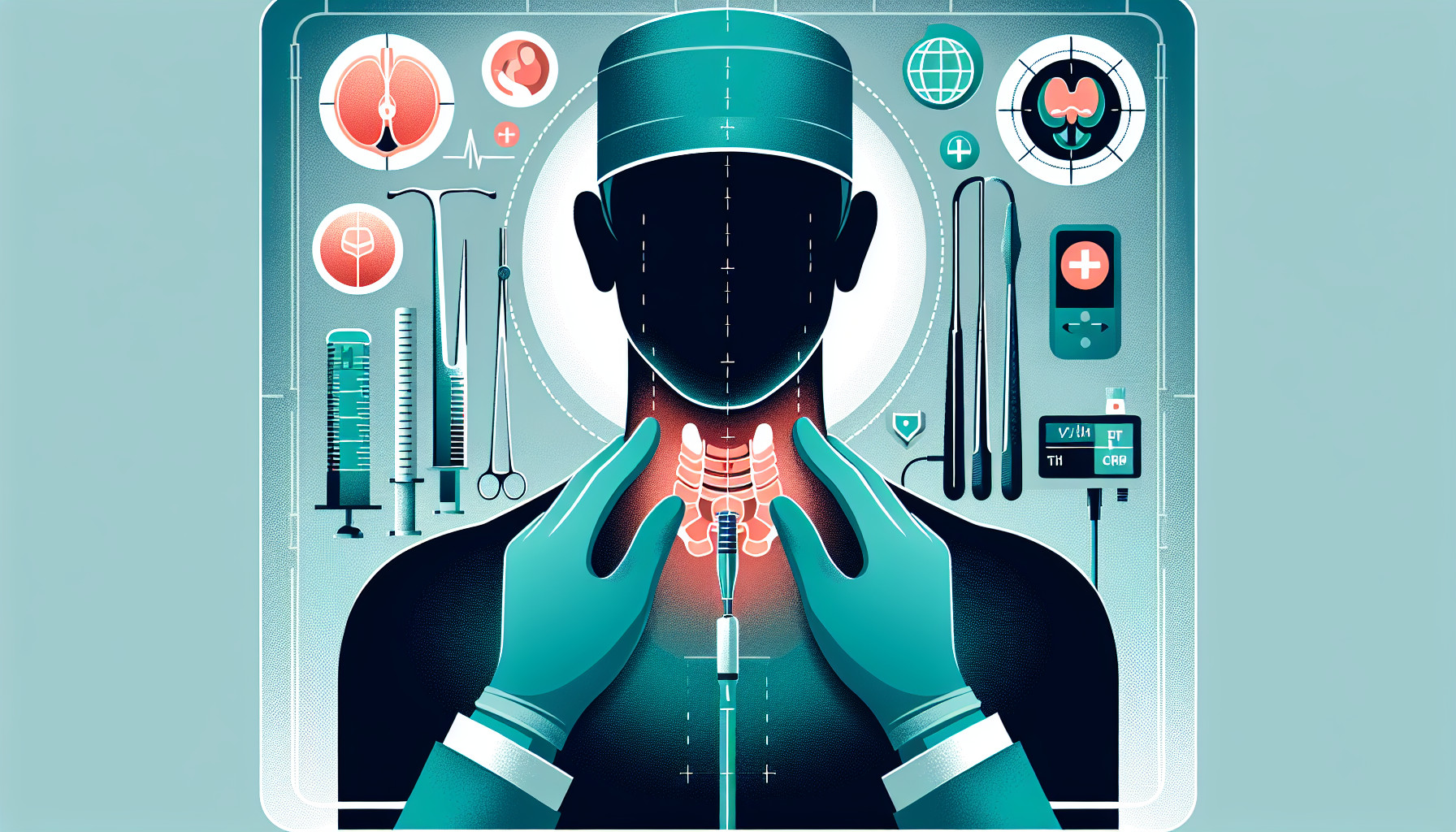Our Summary
This research paper is a systematic review of various studies to understand the value of monitoring parathyroid hormone levels during surgery for tertiary hyperparathyroidism (a condition where the parathyroid glands produce too much hormone). The review included studies where the hormone levels were checked during the operation. The results showed that in 11 out of 18 studies, checking hormone levels during the operation helped doctors to identify whether they had removed enough of the problematic gland or if there were any additional glands that needed to be removed. If the hormone levels dropped appropriately during the operation, patients had very low or no recurrence of the disease. So, this study concludes that monitoring parathyroid hormone levels during the operation can be very helpful to ensure that enough of the gland is removed and to predict the success of the surgery and the likelihood of the disease coming back.
FAQs
- What is the purpose of monitoring parathyroid hormone levels during surgery for tertiary hyperparathyroidism?
- How does checking hormone levels during the operation help doctors in the treatment of tertiary hyperparathyroidism?
- Does monitoring parathyroid hormone levels during the operation predict the success of the surgery and the likelihood of the disease recurrence?
Doctor’s Tip
One helpful tip a doctor might tell a patient about parathyroidectomy is to follow up with regular blood tests to monitor hormone levels post-surgery. This can help ensure that the surgery was successful in correcting the hormone imbalance and prevent any recurrence of hyperparathyroidism. Additionally, it is important to follow any dietary and medication recommendations provided by your healthcare provider to support optimal recovery and overall health.
Suitable For
Patients who are typically recommended for parathyroidectomy include those with:
Primary hyperparathyroidism: This condition occurs when one or more of the parathyroid glands become enlarged and produce too much parathyroid hormone. Symptoms may include fatigue, weakness, bone pain, kidney stones, and osteoporosis.
Secondary hyperparathyroidism: This condition can occur in patients with chronic kidney disease or vitamin D deficiency, leading to overactivity of the parathyroid glands. Symptoms may include bone pain, fractures, and muscle weakness.
Tertiary hyperparathyroidism: This condition occurs when secondary hyperparathyroidism becomes chronic and autonomous, leading to persistent overproduction of parathyroid hormone even after the underlying cause has been treated. Patients with tertiary hyperparathyroidism may experience severe bone disease, kidney stones, and other complications.
Parathyroid cancer: Although rare, parathyroid cancer can also be a reason for recommending parathyroidectomy. Symptoms may include a palpable neck mass, voice changes, and difficulty swallowing.
Severe hypercalcemia: In cases where patients have extremely high levels of calcium in the blood, often due to parathyroid dysfunction, parathyroidectomy may be recommended to lower calcium levels and prevent further complications.
Overall, patients who are experiencing symptoms related to hyperparathyroidism, have complications such as kidney stones or osteoporosis, or have severe hypercalcemia may be recommended for parathyroidectomy to improve their quality of life and prevent long-term complications.
Timeline
Before Parathyroidectomy:
- Patient presents with symptoms of hyperparathyroidism, such as fatigue, weakness, bone pain, kidney stones, and cognitive issues.
- Patient undergoes blood tests to measure levels of calcium and parathyroid hormone, as well as imaging tests to locate the problematic gland.
- Diagnosis of tertiary hyperparathyroidism is confirmed, and surgery is recommended to remove the overactive parathyroid gland.
After Parathyroidectomy:
- Surgery is performed to remove the problematic parathyroid gland.
- Monitoring of parathyroid hormone levels during the operation to ensure enough of the gland is removed.
- If hormone levels drop appropriately during the operation, patients have a lower risk of recurrence of the disease.
- Post-surgery, patients may experience a decrease in symptoms related to hyperparathyroidism.
- Follow-up appointments are scheduled to monitor calcium and hormone levels and ensure the success of the surgery.
What to Ask Your Doctor
- What is a parathyroidectomy and why is it being recommended for me?
- How will the surgery be performed and what are the risks associated with it?
- How long will the recovery process take and what can I expect in terms of pain and discomfort?
- Will I need to take any medication or make any lifestyle changes after the surgery?
- How will my parathyroid hormone levels be monitored during the surgery and how will this information be used to guide the procedure?
- What are the potential outcomes of the surgery and what is the likelihood of the disease recurring?
- Are there any alternative treatments or procedures that I should consider before undergoing a parathyroidectomy?
- How experienced is the surgical team in performing parathyroidectomies and what is their success rate?
- What should I do if I experience any complications or side effects after the surgery?
- Are there any long-term effects or risks associated with having a parathyroidectomy?
Reference
Authors: Finnegan KPJ, Dowling GP, El Wahab SA, Hill ADK. Journal: Am J Otolaryngol. 2025 May-Jun;46(3):104609. doi: 10.1016/j.amjoto.2025.104609. Epub 2025 Mar 11. PMID: 40107159
